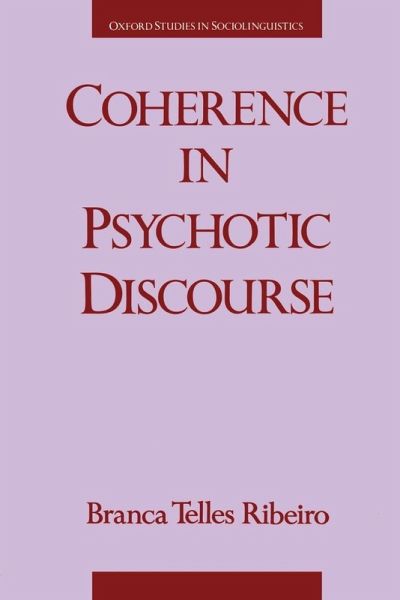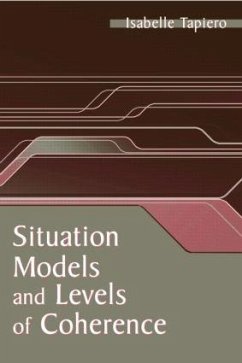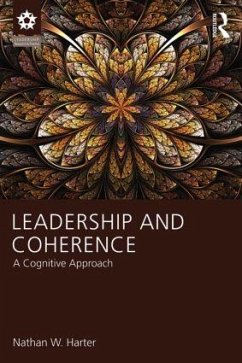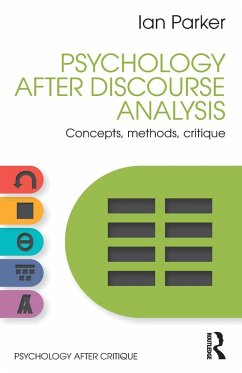
Coherence in Psychotic Discourse
Versandkostenfrei!
Versandfertig in 1-2 Wochen
30,99 €
inkl. MwSt.
Weitere Ausgaben:

PAYBACK Punkte
15 °P sammeln!
This fascinating study explores the ways of establishing coherence in the discourse of a thought-disordered patient. Ribeiro analyzes the discourse between a doctor and a patient who is under an acute psychotic crisis, and then later, when the patient is deemed recovered. Ribeiro looks at how the participants jointly establish referential meaning, and how topic coherence is achieved or breaks down. She then considers how the participants convey superordinate messages, metamessages, and how the patient signals and assesses the frame of talk. Ribeiro concludes that psychotic discourse, while inc...
This fascinating study explores the ways of establishing coherence in the discourse of a thought-disordered patient. Ribeiro analyzes the discourse between a doctor and a patient who is under an acute psychotic crisis, and then later, when the patient is deemed recovered. Ribeiro looks at how the participants jointly establish referential meaning, and how topic coherence is achieved or breaks down. She then considers how the participants convey superordinate messages, metamessages, and how the patient signals and assesses the frame of talk. Ribeiro concludes that psychotic discourse, while incoherent on the level of topic, may be coherent on another level--that of frame. Using sociolinguistic discourse analysis, conversational analysis, and frame analysis, with a dose of theory from contemporary cognitive psychology, Ribeiro's book demonstrates the importance of contextualization in interaction.














